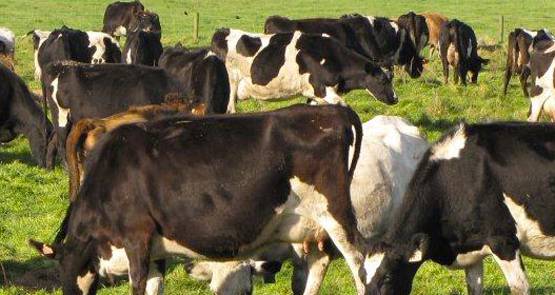
As the government mulls whether to allow the sale of S. Kidman, Australia’s largest portfolio of cattle stations, to Chinese buyer Shanghai Pengxin, it has given its blessing to the sale of another significant Australian property, Tasmania’s Van Diemen’s Land Dairy, to Moon Lake Investments, a company owned by Chinese billionaire Lu Xianfeng.
This is some cause for concern, but not for the knee-jerk reaction that Australia’s largest cattle farm, a stunning property with 18,000 cows perched on the north-west corner of Tasmania, is being sold to a foreign company. It has, in fact, been in foreign hands since it began operations 180 years ago.
It’s worth noting that the history of this sale is grubby, to say the least. When the property first was put up for sale last year Tasmanian Foods Australian-owned consortium TasFoods Ltd entered into talks that went as far as a possible verbal contract to buy the farm, but the consortium was gazumped by an offer by Moon Lake Investments. Some of this remains in court.
At the time Tasmanian-based businesswoman and philanthropist Jan Cameron — who made her own fortune in outdoor clothing and equipment company Kathmandu — stepped forward and offered to match Moon Lakes’ bid, but contracts had been exchanged. She remained waiting in the wings in case the Foreign Investment Review Board knocked back the sale.
That was always unlikely. Yes, there is deep opposition to significant sales of Australian agricultural land to the Chinese from the Nationals, as well as independents like Nick Xenophon, Andrew Wilkie and others.
But as Australia steps up its strategic rhetoric against China on regional security it must balance this by playing nice commercially. As well, it’s been barely three months since the China Australia Free Trade Agreement came into force, and two knockbacks in a row would go down like a cup of cold sick in Beijing.
But how much scrutiny did the board give to Lu? His company, Shenzhen Stock Exchange-listed Ningbo Xianfeng New Material, makes materials for screens. It has had diddly squat to do with agriculture. Interestingly, it was also one of the under-bidders for S. Kidman.
It has previously bought an Australian company, the nation’s biggest blind maker, Kresta Holdings Limited. Lu is now acting MD of Kresta as well as chairman — hardly the Australian standard of good corporate governance.
Kresta’s profits have dissolved into losses. The board promises that this is short term of course, which it may be, as directors have been buying stock — but on paper it is a less-than-impressive record so far.
In December, Kresta took out a $10 million loan with a company also controlled by Lu and is paying a fat interest rate of 5% back to his Hong Kong subsidiary.
The Foreign Investment Review Board, which “vets” such deals, has particularly poor form on “privately” wealthy Chinese. In 2010 FIRB approved, with uncommon alacrity, the $41 billion-plus takeover of Perth-based mining group Sundance Resources to Chinese group Hanlong, founded and headed by a man named Liu Han. It had no experience in mining, and this was despite stories in the Australian press at the time that indicated Lui may not be, ahem, the right person to buy an Australian listed company.
In 2014 Lui was charged with corruption and murder and was executed a year later by firing squad. What were the esteemed members of FIRB thinking when they woke up to that sobering news?
Crikey is in no way drawing a parallel between Lui and Lu, simply noting that FIRB’s track record of due diligence on Chinese buyers leaves plenty to be desired. And of course it’s difficult because the information around Chinese business is extremely opaque and what tidbits are around are in Mandarin.
Frances Adamson, Malcolm Turnbull’s chief foreign policy adviser, is as aware as anyone at senior levels of government about this. She was Australia’s ambassador to China during the Lui saga. She might be a good person to run these deals past, at least for a sanity check.
Since the melamine milk crisis of 2008, when 16 Chinese infants died and 54,000 more were hospitalised with kidney stones across the nation, Australian and New Zealand milk powder has been much sought-after in China.
Perhaps Lu’s aim is to send the milk back to China as powder — a move local industry types have pointed out would raise dairy costs for Australians.
We shall have to watch this space. Meanwhile, Australia’s spectacularly awful Treasurer must make a call on S. Kidman. Will the Chinese get another win, or is this one enough for now?








We should face the fact that not enough of us care sufficiently about what’s best for Australia and its Citizens because we don’t wish to endanger the marvelous short term benefits accruing to so may of our Lotus Eaters.